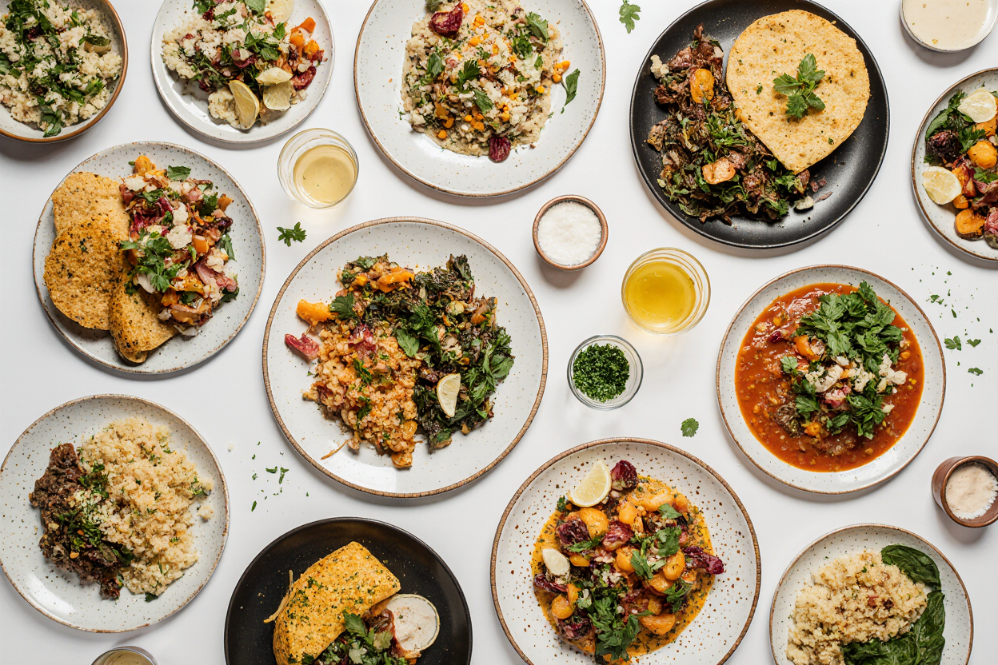Ever feel like every week there’s a new “miracle” diet promising incredible results? I get it – the nutrition world can be confusing as heck! One day, eggs are terrible for you, the next they’re a superfood. Today, I’m diving into the biggest diet myths that keep circulating (and why they’re just plain wrong).
These misconceptions aren’t just annoying – they can seriously mess with your relationship with food and derail your health goals. So let’s cut through the noise and get to what actually works.
Table of Contents
🤔 Why These Diet Myths Won’t Go Away
Here’s the thing about diet myths – they spread faster than gossip in a small town. Instagram influencers, fad diet books, and that one friend who “lost 20 pounds in 2 weeks” all contribute to the madness.
Most of these myths sound convincing because they contain tiny bits of truth wrapped in oversimplified explanations. Our brains love simple answers, even when nutrition is anything but simple.
When you fall for these myths, you might end up:
- Developing weird food fears
- Missing out on important nutrients
- Bouncing between extreme diets
- Feeling guilty about normal eating
Time to bust these myths wide open!
🍞 Myth 1: Carbs Are Your Worst Enemy
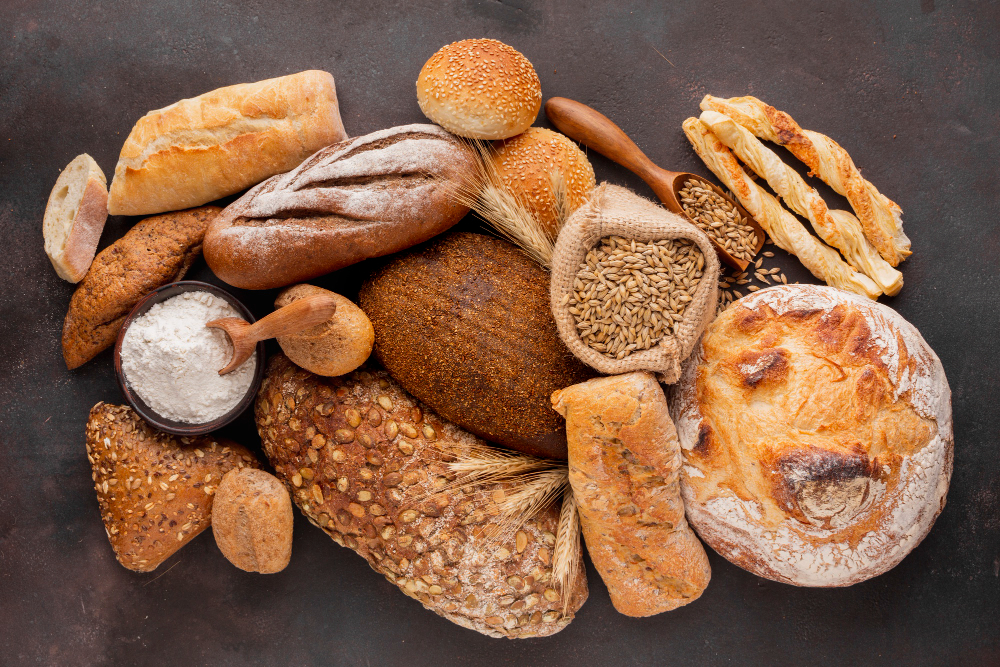
What People Think
“Carbs make you fat! Cut them completely and watch the pounds melt away!”
Reality Check
Hold up – not all carbs are created equal. Your brain runs on glucose (which comes from carbs), and your muscles need carbs to perform their best.
The real villain? Highly processed junk masquerading as food. There’s a world of difference between:
🚫 Processed carbs: Cookies, white bread, sugary cereals
✅ Whole food carbs: Oats, sweet potatoes, quinoa, fruits
Quality carbs give you:
- Long-lasting energy that doesn’t crash
- Fiber for digestive health
- B vitamins for brain function
- Fuel for killer workouts
Quick win: Swap your afternoon crackers for an apple with almond butter. Your energy levels will thank you!
🌙 Myth 2: Eating After Dark Packs on Pounds

What People Think
“Your metabolism shuts down after 7 PM, so anything you eat turns straight to fat.”
Reality Check
Your body doesn’t wear a watch! It burns calories 24/7 just to keep you alive. Late-night weight gain usually happens because people tend to mindlessly munch on high-calorie snacks while binge-watching Netflix.
What’s really going on:
- Evening snacks are often chips, ice cream, or leftover pizza
- We make poorer food choices when we’re tired
- Big meals before bed can mess with sleep quality
The timing isn’t the problem – it’s usually what and how much you’re eating.
Smart move: Stock your kitchen with satisfying late-night options like Greek yogurt with berries or a small handful of nuts.
🧪 Myth 3: Detox Diets Clean You Out
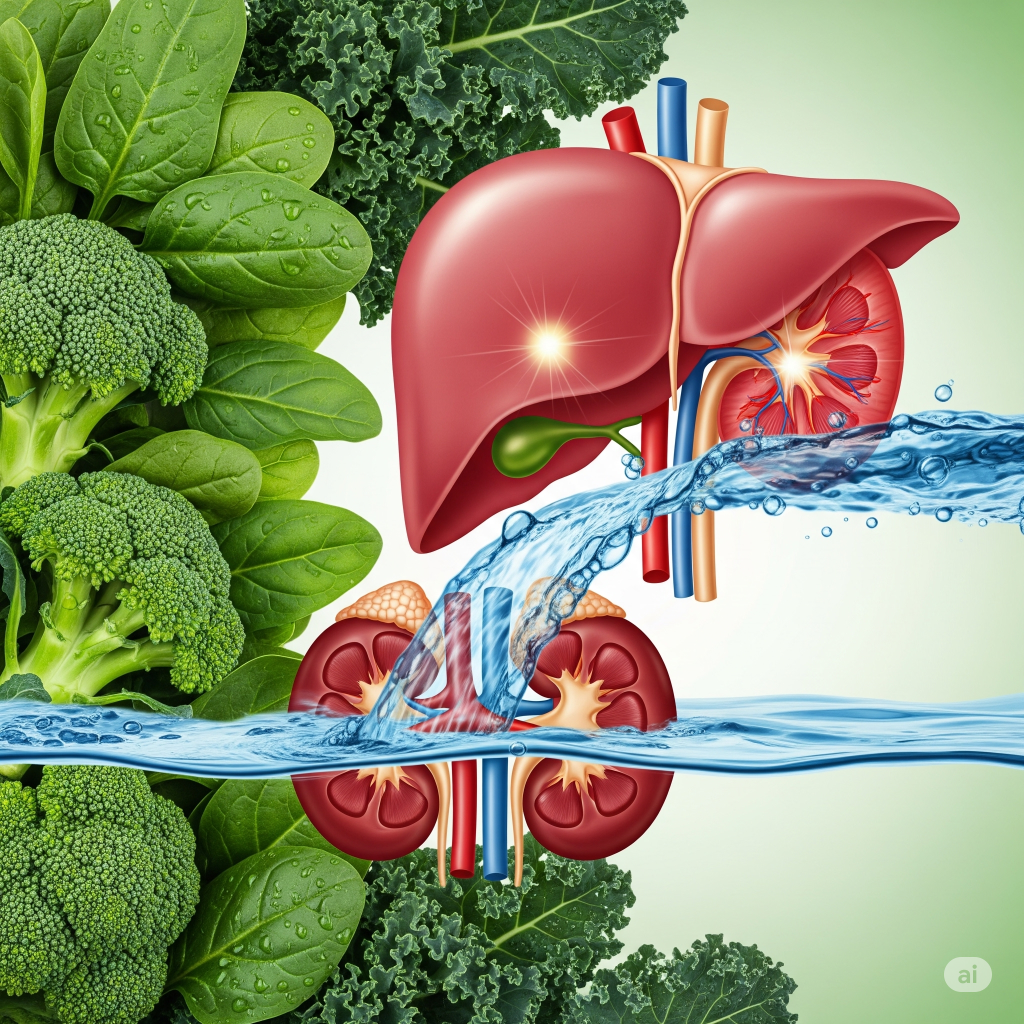
What People Think
“I need a juice cleanse to flush toxins and reset my system!”
Reality Check
Plot twist: your liver and kidneys are already doing an amazing job detoxing your body around the clock. They’re like having a professional cleaning crew working 24/7 – no expensive juice required!
Your built-in detox system includes:
- Liver filtering and processing toxins
- Kidneys flush waste through urine
- Lungs exhale carbon dioxide
- Skin releases toxins through sweat
Most “detox” diets are just sneaky starvation plans that cause rapid water loss. You feel “cleansed” because you’re dehydrated and running on empty.
Better approach: Support your natural detox organs by drinking plenty of water, eating fibre-rich foods, moving your body, and getting solid sleep.
🥑 Myth 4: Fat Automatically Makes You Fat
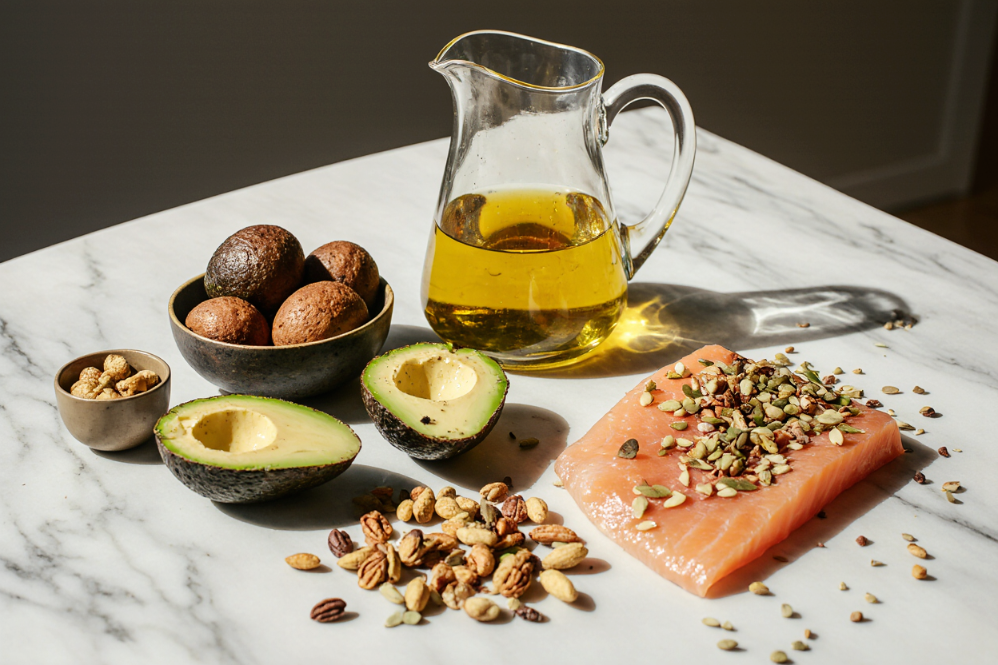
What People Think
“Fat has more calories than anything else, so avoiding it is the fastest way to lose weight.”
Reality Check
This myth dominated the 90s & caused decades of confusion. Yes, fat contains 9 calories per gram versus 4 for carbs and protein, but that doesn’t make it evil.
Healthy fats are absolutely essential for:
- Making hormones that regulate metabolism
- Absorbing fat-soluble vitamins (A, D, E, K)
- Keeping your brain sharp
- Feeling satisfied after meals
When food companies removed fat, they usually replaced it with sugar and refined carbs. These low-fat products often left people hungrier and more likely to overeat.
💡 Focus on these healthy fats:
- Avocados and olive oil
- Nuts, seeds, and nut butters
- Fatty fish like salmon and sardines
- A little coconut oil here and there
🏃♀️ Myth 5: No Pain, No Gain Every Single Day
What People Think
“I need to do intense workouts daily or I’m wasting my time.”
Reality Check
This perfectionist mindset burns people out faster than a cheap candle. Your body actually gets stronger during rest periods, not just during workouts.
Here’s what constant intense exercise can lead to:
- Overuse injuries that sideline you for weeks
- Hormone imbalances that mess with your metabolism
- Mental burnout that kills motivation
- Elevated stress hormones that can stall weight loss
⚖️ A balanced routine looks like:
- 2-3 strength sessions per week
- Daily movement (even just walking counts!)
- Stretching or yoga for flexibility
- Rest days for recovery and life
Remember: consistency beats intensity every time. A 20-minute walk every day trumps one brutal 3-hour gym session followed by a week on the couch.
💊 Myth 6: Pills Can Replace Real Food

What People Think
“These supplements have everything I need – I can eat whatever and still be healthy!”
Reality Check
If only it were that easy! While some supplements can address specific deficiencies, they cannot replicate the complex nutritional profile of whole foods.
Real food provides:
- Thousands of compounds working together
- Fiber that supplements can’t match
- Natural ratios of nutrients your body recognizes
- Satisfaction that a pill just can’t deliver
The supplement industry is basically the Wild West – minimal regulation means wild claims and inconsistent quality.
Start here: Get your nutrients from food first. If you suspect deficiencies or have specific health concerns, work with a healthcare provider to figure out what might actually help.
read also: The Life-Changing Benefits of Regular Strength Training
The Life-Changing Benefits of Regular Strength Training: Your Complete Guide
🍽️ Myth 7: Skipping Meals = Faster Results
What People Think
“If I skip breakfast and lunch, I’ll create a bigger calorie deficit and lose weight faster.”
Reality Check
This backfires more often than a rusty car. When you skip meals, your body thinks food is scarce and:
- Slows down metabolism to conserve energy
- Increases hunger hormones that make you ravenous
- Causes blood sugar swings that affect mood and energy
- Often leads to overeating later in the day
🎯 Smarter strategy: Consume regular, balanced meals with protein, healthy fats, and quality carbohydrates. This helps maintain your metabolism and prevents the restrict-binge cycle.
👥 Myth 8: What Worked for Them Will Work for You
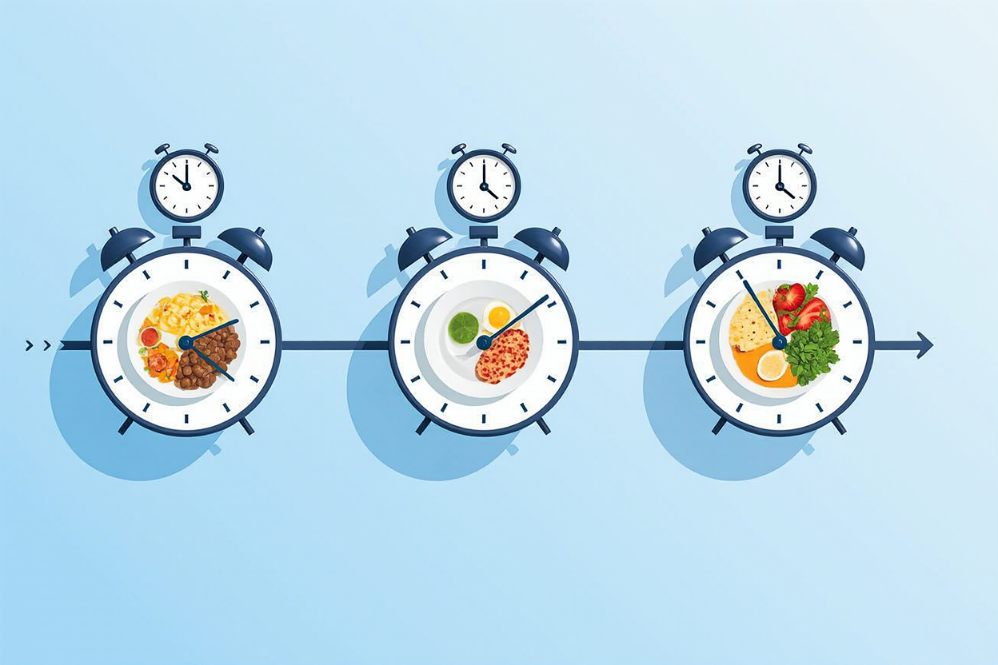
What People Think
“My coworker lost 30 pounds on keto, so I should do keto too!”
Reality Check
Your body is as unique as your fingerprint. What works for your friend might be a disaster for you based on:
- Your genetics and how you process different foods
- Your lifestyle, schedule, and stress levels
- Food preferences and cultural background
- Any medical conditions or medications
- Your relationship with food and eating history
The diet that you can stick with long-term while feeling energized and satisfied is the “best” diet for you.
🎯 Personal approach: Focus on principles (eat mostly whole foods, include protein at meals, stay hydrated) rather than rigid rules. Consider collaborating with a registered dietitian to receive personalised guidance.
🍯 Myth 9: Natural Sugars Don’t Count
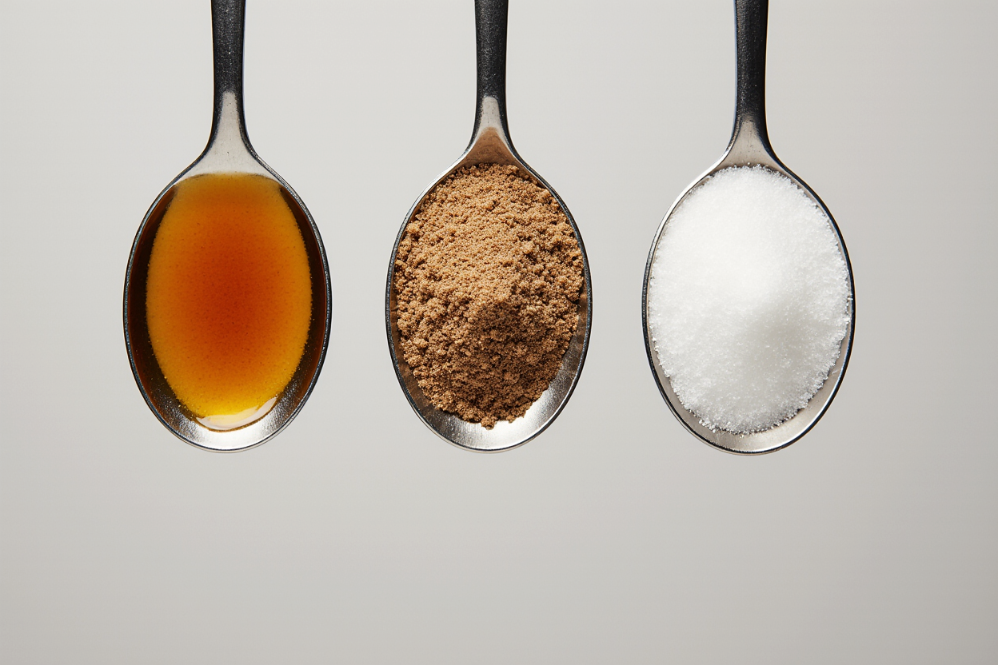
What People Think
“Honey and agave are natural, so they’re totally different from regular sugar.”
Reality Check
Your pancreas can’t tell the difference between a spoonful of honey and a spoonful of white sugar. Both will:
- Spike your blood glucose similarly
- Provide calories without much nutrition
- Feed the bacteria in your mouth that cause cavities
- Potentially trigger cravings for more sweet stuff
📝 The real deal: All added sugars should be treated the same way – enjoy them occasionally, not daily. Get your sweet fix from whole fruits that come packaged with fiber, vitamins, and antioxidants.
🧠 Myth 10: You Can’t Trust Your Own Body
What People Think
“My hunger cues are totally broken – I need strict rules to know when to eat.”
Reality Check
For most people, hunger and fullness signals work just fine when we actually listen to them. Years of dieting, stress eating, and ultra-processed foods can definitely interfere with these signals, but they’re usually recoverable.
🔄 Reconnecting with your body:
- Eat without scrolling your phone or watching TV
- Check in with your hunger before, during, and after meals
- Stop eating when you’re satisfied, not stuffed
- Learn the difference between mouth hunger and stomach hunger
This takes practice and patience, but it’s way more sustainable than following external food rules forever.
📚 What Actually Works for Lasting Weight Loss
Now that we’ve cleared up these misconceptions, here’s what research consistently shows works:
🏗️ Foundation Principles
Calorie awareness without obsession: You need a moderate calorie deficit to lose weight, but you don’t need to count every single bite.
Protein at every meal: This helps maintain muscle mass, keeps you fuller longer, and takes more energy to digest.
Progress over perfection: Small, consistent changes beat dramatic overhauls every time.
Sleep and stress matter: These hugely impact hormones that control hunger and metabolism.
🌱 Building Habits That Actually Stick
Real change happens when you focus on systems and habits rather than quick fixes.
Start With These Game-Changers:
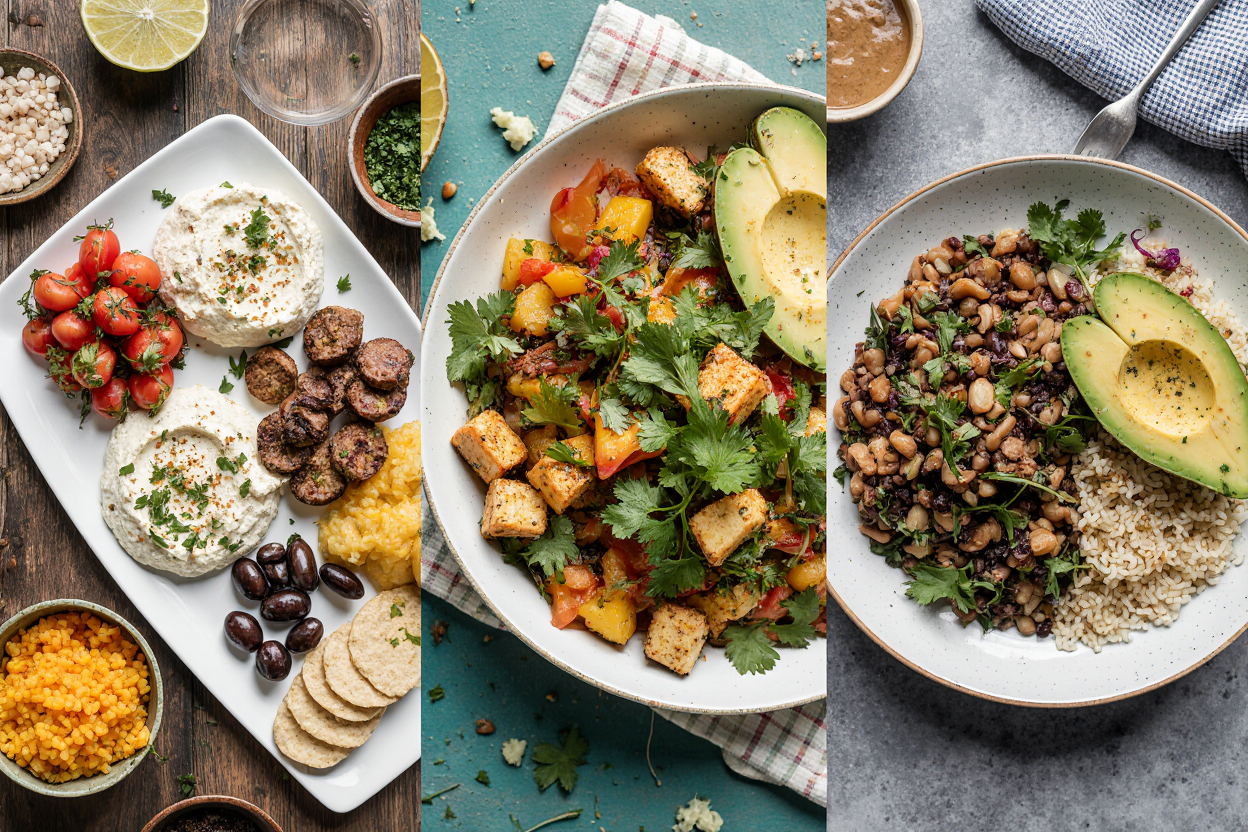
💧 Hydration first: Drink water when you wake up and before meals. Sometimes thirst masquerades as hunger.
🍽️ Balanced plates: Include protein, healthy fats, and quality carbs at most meals.
🚶♀️ Daily movement: Find ways to move that you actually enjoy – dancing, hiking, playing with your kids.
😴 Quality sleep: Aim for 7-9 hours. Poor sleep messes with hunger hormones big time.
🧘♀️ Stress management: Find healthy ways to deal with stress that don’t involve food.
🚩 Spotting Future Diet Myths
Want to protect yourself from the next wave of nutrition nonsense? Here’s what to watch out for:
Red flags:
- Promises of losing more than 2 pounds per week
- Claiming one food or nutrient is completely good or evil
- Before/after photos with no context about the timeline or methods
- Celebrity endorsements without scientific backing
- Eliminating entire food groups without a medical reason
Green flags:
- Information from registered dietitians or nutrition researchers
- References to peer-reviewed studies
- Balanced, moderate recommendations
- Acknowledgement that everyone is different
- Focus on overall eating patterns, not single foods
🗓️ Your Myth-Free Action Plan
Ready to ditch the diet myths and build lasting healthy habits?
Week 1: Take Stock
- Notice your current eating patterns without judging them
- Pay attention to when you’re actually hungry vs. eating out of habit
- Identify which myths you might have been following
Weeks 2-4: Small Shifts
- Add vegetables to two meals per day
- Include protein with every meal and snack
- Replace one processed snack with a whole food option
Months 2-3: Build Momentum
- Create a loose meal schedule that works with your life
- Try one new healthy recipe each week
- Find physical activities that don’t feel like punishment
Long-term: Keep It Going
- Stay curious about nutrition science from reliable sources
- Adjust your approach based on what works for your lifestyle
- Remember that setbacks are normal and don’t mean failure
🎯 The Bottom Line
Debunking common diet myths isn’t just about setting the record straight – it’s about freeing you from the confusion and guilt that often comes with trying to eat “perfectly.”
The truth about nutrition is often less flashy than the myths, but it’s infinitely more sustainable. Instead of chasing the next miracle diet, focus on building a positive relationship with food and your body.
Nutrition science keeps evolving, and that’s okay. What matters most is finding an approach that supports your health, fits your real life, and brings you satisfaction rather than stress.
Your mission: Pick one myth you’ve been believing and start implementing the evidence-based alternative this week. Small changes compound over time to create real, lasting transformation.
📖 Trusted Resources for Real Nutrition Info
Want to keep learning from reliable sources? Check out these evidence-based websites:
- Harvard T.H. Chan School of Public Health – The Nutrition Source
- Academy of Nutrition and Dietetics
- National Institute of Diabetes and Digestive and Kidney Diseases
Always chat with healthcare professionals before making major changes to your diet or exercise routine, especially if you have health conditions or take medications.
Ready to leave diet myths in the dust? The science is clear, and sustainable change is totally possible when you focus on facts instead of fiction. You’ve got this!

